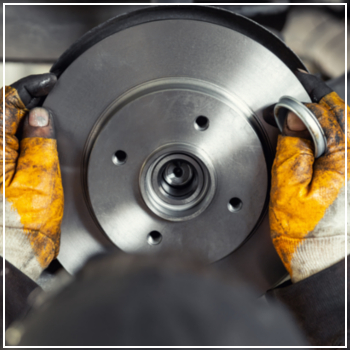7 Signs Your Brakes Need Service
The brake system comprises the rotors, which are located behind each wheel, and the calipers, which clamp down on the rotors when you press the brake pedal. This action slows the wheels, enabling the car to come to a full stop. A key component in the system, the brake pads endure significant wear and tear and should be replaced once their thickness diminishes to 3mm or less. Throughout the system, brake fluid ensures smooth operation, but contaminants and debris can impair its performance. For your safety and to prevent costly repairs, keep an eye out for these signs that your brakes require servicing. When it feels like you have to press the brake pedal all the way down just to bring the car to a halt, it could be due to a soft brake issue. Normally, the brake pedal should feel firm and somewhat resistant when you apply pressure with your foot. If you find yourself pressing harder, moisture or air might have infiltrated the brake fluid, or it could be leaking from a hose. You might need to have the brake lines bled or flushed and the fluid replaced. An extended stopping distance can also suggest that your brake pads have worn beyond acceptable levels. You might need to apply more force, push the pedal further down, or press the brakes earlier than usual for the car to come to a complete stop. This phenomenon, known as "brake fade," places additional stress on your rotors and leads to quicker wear of the brake pads. Your car may not stop when you anticipate, and critical brake components degrade faster. Different sounds can indicate excessive wear or damage to your brake system: When you apply the brakes, you might notice your car pulling toward one side. While this could indicate an issue with the suspension system, it might also be a sign of uneven brake pad wear, possibly caused by poor tire alignment and rotation. If left unaddressed, uneven wear can affect the steering rack, wheel bearings, and ball joints. Brake fluid might also play a role; pulling can signal debris buildup. Additionally, the piston within the caliper might not be functioning correctly, preventing the system from moving uniformly. Another alarming sign is feeling your car vibrate when you press the brake pedal. Most of the vibration will originate from the brakes themselves or the steering column. This correlation can indicate warped or worn-out rotors, affecting how they interact with the brake pads. If this persists, your brake pads will wear unevenly, reducing their effectiveness and lifespan. A burning odor can signify an oil or engine problem but may also indicate that your brakes are overheating. Beyond being inconvenient, this can boil your brake fluid or point to caliper damage. In either case, driving further poses a high risk of brake failure, particularly if you see smoke around the wheels. This is your car's way of alerting you that the brakes need attention. However, it could mean one of two things. For newer vehicles, the light turns on based on predetermined service intervals determined by mileage. Alternatively, a signal has been sent via the car's computer system, indicating a problem with the brakes. The signal could be in response to low or leaking brake fluid or brake pads that are too thin. Have you observed one or more of these signs? Contact DaSilva’s Auto Body today to schedule an appointment for brake services and repairs. SHAOXING KEQIAO FANEVER IMPORT AND EXPORT CO., LTD , https://www.sxfanever.com Drivers often overlook brake maintenance until they notice something amiss, such as the car taking longer to stop or hearing an unpleasant grinding noise when braking. Considering the importance of vehicle safety, brakes are undoubtedly among the most critical components of any car.
Drivers often overlook brake maintenance until they notice something amiss, such as the car taking longer to stop or hearing an unpleasant grinding noise when braking. Considering the importance of vehicle safety, brakes are undoubtedly among the most critical components of any car.Reduced Responsiveness
Increased Stopping Distance
Unusual Noises
Car Pulling to One Side
Shaking or Vibrations
Burning Smell
Brake Warning Light